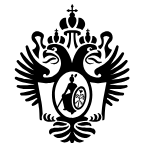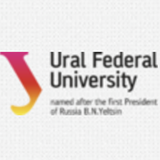Introduction to North Caucasus Federal University
North Caucasus Federal University is a comprehensive university located in Stavropol, Russia. It is an important education, scientific research and cultural center in the region. It has significant advantages in disciplines such as law, economics, and linguistics. It is committed to cultivating various professional talents for the North Caucasus region and its surrounding areas, and promoting the economic, cultural and social development of the region.
Overview
Student size: In the 2019-2020 academic year, the school had 6,500 students, and currently the school has a total of about 20,000 students.
Faculty: The school has 1,168 highly qualified teachers, including 194 doctors of science and 782 associate doctors of science. The proportion of teachers with professorial titles is as high as 83.5%, which is much higher than the 60% standard stipulated by the Russian Ministry of Education. The average age of teachers is 46.5 years old.
History and establishment time
North Caucasus Federal University was established in 2011 in accordance with the Decree No. 958 of the President of the Russian Federation and the Decree No. 2012 of the Russian Government. Order No. 226-р, formed by the merger of three universities in the Stavropol region: the North Caucasus State Technical University, Stavropol State University and Pyatigorsk University of Humanities and Technology.
School Strength
Teaching Achievements: The school provides bachelor's, master's and doctoral education at multiple levels, covering 157 professional fields, and has trained a large number of professionals who meet the needs of regional economic and social development.
Scientific Research Strength: The school has 27 scientific schools and 47 research fields, with multiple scientific research laboratories and research centers, and has undertaken a number of national and regional scientific research projects. It has achieved a series of scientific research results in the fields of nanomaterials, basic medicine, biomedicine, food technology, etc., providing strong support for the region's economic development and scientific and technological innovation.
International Cooperation: The school has 15 global The university has established cooperative relations with universities and research centers in various countries, and has continuously expanded international cooperation and exchange projects, providing students with abundant overseas learning and exchange opportunities, and enhancing the international influence of the school.
Nature of the institution
Public federal university.
Educational philosophy
Focus on cultivating students' practical ability and innovative spirit, emphasize the close integration of education with regional social and economic development, formulate education plans according to regional needs, and strive to provide students with high-quality education, cultivate professionals with social responsibility, innovation ability and international vision, and promote regional sustainable development.
Key laboratories and disciplines
Key laboratories: The school has a number of scientific research laboratories, such as some laboratories related to nanotechnology, information technology, biomedicine, etc., which provide advanced experimental equipment and research platforms for scientific research and teaching in related disciplines.
Key disciplines: Law, economics, linguistics, mathematics, physics, chemistry, life sciences, oil and gas engineering, information technology and communications and other disciplines are the key disciplines of the school. These disciplines have achieved remarkable results in teaching, scientific research and talent training, and have a high academic status and influence in Russia and internationally.
Department
The school has 10 colleges and 2 There are 10 branches, including the School of Humanities, the School of Mathematics and Natural Sciences, the School of Life Sciences, the School of Law, the School of Economics and Management, the School of Education and Social Sciences, the School of Petroleum and Natural Gas, the School of Information Technology and Telecommunications, the School of Engineering, etc., covering multiple disciplines such as natural sciences, social sciences, engineering technology, humanities and arts.
Ranking
The specific ranking of the school in the international authoritative university rankings has not yet been found, but the school is one of the largest and most powerful higher education institutions in the North Caucasus region, and has a high reputation and influence in Russia.
Expenses
The school offers two tuition modes: free and paid. The specific tuition varies according to the major and degree level. The annual tuition for undergraduates is about US$2,000-4,000, and the annual tuition for masters is about US$3,000-5,000.
Campus
Teaching facilities: The school has modern teaching buildings, libraries, laboratories and other teaching facilities. Among them, the North Caucasus Federal University Library is one of the best libraries in Russia, with a collection of more than 2.5 million books and a number of precious ancient books, the oldest of which can be traced back to the 17th century. Century.
Living facilities: The campus is equipped with dormitories, canteens, infirmaries and other living service facilities. The student dormitories are located on campus and provide double or triple rooms with independent bathrooms and public kitchens. The dormitories have been renovated and equipped with brand new furniture, providing students with a comfortable living environment.
-

Peter the Great St.Petersburg Polytechnic University
-

Moscow State University M. V. Lomonosov
-

Bauman Moscow State Technical University
-

St. Petersburg State University
-

Tomsk State University
-

Peoples' Friendship University of Russia
-

Don State Technical University
-

Ural Federal University
-

Moscow Institute of Physics and Technology
-

Kazan Federal University
-

Mesoamerican University
-

Istmo University
-

Mariano Galvez University of Guatemala
-

Regional University of Guatemala
-

Galileo University
-

Francisco Marroquín University
-

Rafael Landívar University
-

University of the Valley of Guatemala
-

University of San Carlos of Guatemala
-

Technological Institute of Tlaxcala Plateau
-

Golfo University
-

Technological University of South Sonora
-

Technological University of Huejotzingo
-

Tizimín Institute of Technology
-

Chilpancingo Institute of Technology

